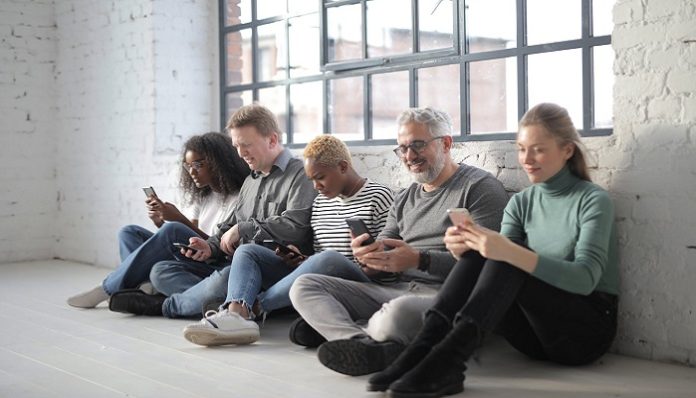
This Christmas Eve, as my family gathered by the fire, we were not lost in conversation, but rather, glued to the screens of our phones. My brother suggested a “game” where we all put our devices in a pile on the coffee table; first one to touch theirs owed everyone an ice cream. From that moment forward, we became active conversationalists and finally got the chance to catch up without any distractions.
It’s hard to remember the days before my smart phone became an appendage. I never leave the house without knowing it’s in my pocket, and find it hard to go two hours without checking for notifications. Whether being connected is productive or toxic, it is undoubtedly a hauntingly present phenomenon.
But remember when we didn’t have the luxury of attaining immediate resolutions to all of our questions? We could sit down for dinner and have actual discussions. We could spend hours trying to remember that movie title or the capital of Indiana. Instead, we turn to our trusty iPhones, seeking answers on Google, which instantaneously solves our debate within “about 38, 100, 000 results (0.29 seconds).”
It’s crazy to think back on the time when the Internet wasn’t an automatic first response. Trying to recall the correct lyrics to a song used to be shouting out incoherent phrases that bore minimal resemblance to the actual verse (Starbucks lovers), but now it means punching a few buzzwords into Google and getting the answer right away.
What does it mean for us to have a world of knowledge at our fingertips? Does it eliminate discussion completely? I, for one, spend less time memorizing information when I know it will definitely be available to me at all times. Beyond being a source of infinite knowledge, smartphones allow us to communicate so seamlessly that they change what it means to speak or even make plans with someone. Instead of setting a date to meet, I now say “we’ll figure it out. I’ll text you.” This flexibility often leads to last-minute plan changes and cancellations. I’m positive that this rarely occurred twenty years ago.
It’s strange to think of growing up without this connectivity. While it generally feels like a privilege to have an iPhone, it undoubtedly adds an innumerable amount of pressure to our lives. Being connected 24/7 is highly rewarded in our society. Executives respect you if you can answer their emails immediately. Jobs search for candidates who are on top of social media. So we’ve all been trained to keep our eyes locked on the screen. The thought of looking away for one moment is the complete loss of an opportunity.
Then, of course, there’s the feeling of emptiness you get when you take a look at your messages and your inbox shows up empty. According to an article from The Daily Mail, studies “have found a link between phone addiction and emotional instability, as well as a reduced ability to focus on the task at hand.” Pair that with the impulse to check your phone when you’re driving and you’ll suddenly realize that this culture of constant distraction can be physically dangerous, or even fatal.
So how can we reverse the damage? Smartphones are here to stay, but there are plenty of ways to be more mindful and aware in your daily life without relying on smartphones. It is as simple as delegating specific times to respond to emails and check Facebook. Turn off your Snapchat and Twitter notifications and open the apps to check every once in a while. Start using Google as a last resort instead of a first to enhance your conversations. By taking these media breaks, it’s possible to be a little less reliant on the technology we cherish so dearly. Log out and power off for a couple minutes today and see if it makes a difference.
Featured image via Andrea Piacquadio on Pexels



















I am completely guilty of being too reliant on my iphone/ laptop too! But I’ve found that, when traveling, some of the best moments happened when I didn’t have wifi and couldn’t use my phone because I become so much more aware of whats going on around me. Love the idea of “media breaks”
I am guilty of being completely reliant of my phone/ laptop, but have found that when traveling some of the best moments happened when I was away from wifi and could really focus on what’s going on around me. Love the idea of “media breaks!”
I completely relate to what you’re saying! I have 9 younger cousins and instead of trying to think of games to play, they rely on their iPods and iPhones to play games such as Flappy Bird or Temple Run. At family gatherings, majority of my family members will be glued to the screen of their phone, rather than participating in the minimal conversations that are occurring. The media breaks are really important, but are difficult to have because so many people’s careers are dependent on technology and social media, making checking their phones a priority over other things. That being said, media breaks are super important and people should make more of an effort to put their phone down and enjoy their surroundings!